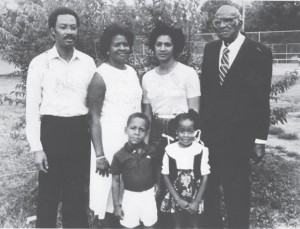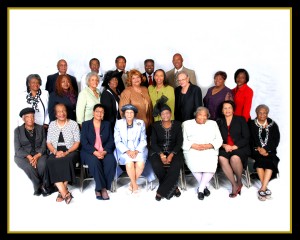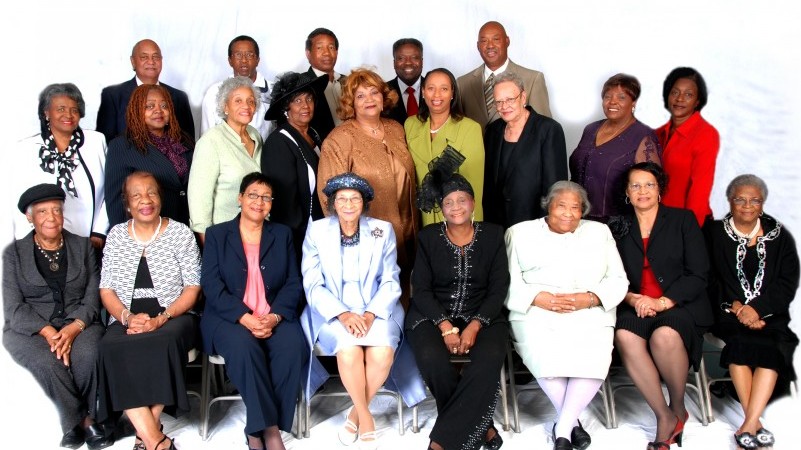
Left to Right Rear: “Malcolm Walker, Armelia Williams, Dixie Ballou and Emory Henderson.
As we look back on community organizations that have existed in the Shepherd Community, we realize that there have been three distinct community associations. We have minutes of the first association dating back to the early 1920’s. The name of the first organization was the “Shepherd Community Club.” The president was Rev. J. W. Ridley and later, Mr. Emery G. Henderson. The secretary was Mrs. Mary Strickland and the chaplain was Rev. W.G. Strickland.
The Shepherd Community Club functioned at least until the late 1930’s. During late 1930’s and the early l940’s there was an influx of newcomers to Shepherd as a result of an ad campaign for the selling of lots for homes. The lots were sold first by Realty Trust Corporation and later by Washington Park Inc., a corporation. For example, on November 4, 1936, lots were deeded to Theodore Watley, F. M. Storey, Otis Jackson, Jerry Malone, Susie Mae Brown and Richard Swaing. By the early 1950’s a new community association surfaced. The name of the new community association was the “Shepherd Civic Club.” Mr. Emery G. Henderson continued to be a leader in the second organization along with newcomers including Raymond Hudson, Sr., Florence Goolsby Owens, Sally Moore, Emmitt Henderson, Wiley and Ethel Simmons, Sr. and Robert L. Marsh. The third community association was initiated in 1967 and continues to the present. Organizers of the “Shepherd Community Action Council” included again: Mr. Emery G. Henderson, Bro. George Carson, Bro. Rufus Williams, T. H. Cravens, Florence Goolsby Owens, Emma Cravens, Rose Palmer, Mildred Cooke, Armelia Williams, Sally Moore, Jean Strickland, Dixie Ballou, Barbara Lipkins, Hanson and Arlena Smith,

Rev. Samuel and Velma Jenkins, and Annie Presley. Malcolm Walker became involved in 1969 shortly after finishing college. Mr. Emery Henderson was a leader in all three of the community associations of Shepherd beginning in the early 1920’s and served until his death on February 23, 1987 at the age of 92. He was proud of his community and worked very hard to provide improvements by organizing the people and involving elected officials and people of influence in making resources available.
